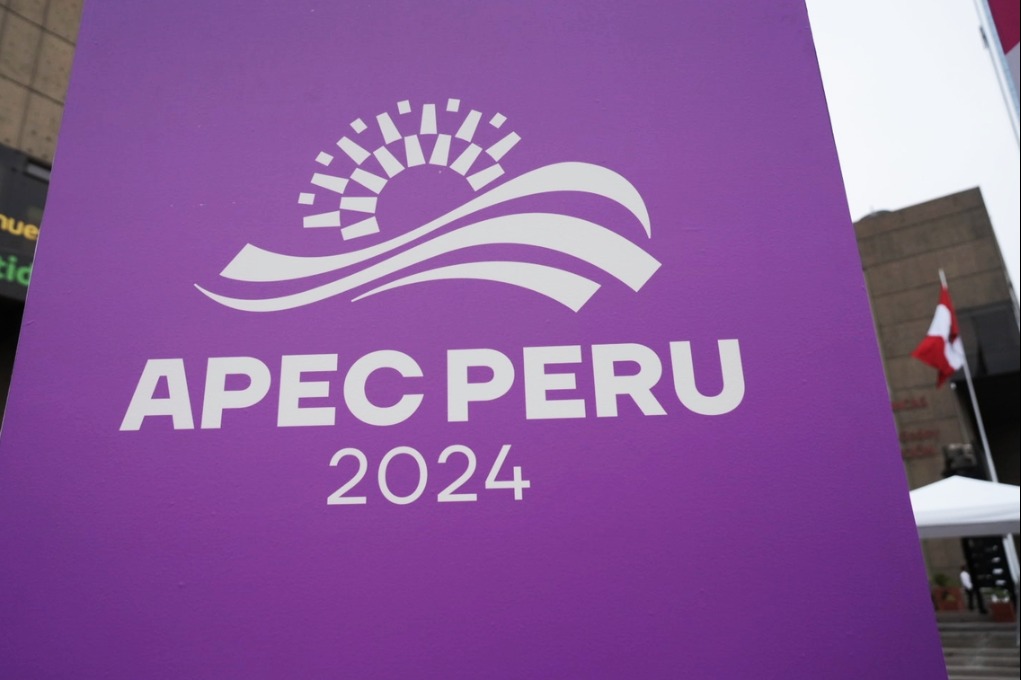Next stage of China's return to centrality


Editor's note: China has made remarkable achievements in building a modern socialist country under the leadership of the Communist Party of China, which can help other countries to chart their own path to modernization. And the fact that helping build a global community with a shared future is one of the essential requirements of China's modernization shows it is fulfilling its global responsibility of helping other countries boost their development. Three experts share their views on the issue with China Daily.
China is not "rising", rather it is returning to — and perhaps about to exceed — its former centrality on the world's stage. China has had three global iterations in history: a "Golden Age" covering the Song Dynasty (960-1279); a period of dominance during the Yuan (1271-1368) and Ming (1368-1644) dynasties; and the return to centrality from Deng Xiaoping in the 1970s to Xi Jinping at present.
There were other great periods where world and Chinese histories intersected. However, at the just-concluded 20th National Congress of the Communist Party of China, the country adopted a structural model aimed at faster, more efficient decision-making, from which we may gather the country's intention to complete its return to centrality in a new world order based on efficiency and prosperity at home.
The 20th Party Congress confirmed Xi Jinping as the core of the CPC, and formed a new 205-member CPC Central Committee, and a new Standing Committee of the Political Bureau of the CPC Central Committee.
There are several important points of interest here for any disciplined foreign policy scholar.
First, mostly in the West, the apportionment of executive power to the Chinese leader has been described as "overcentralized". But in the West — particularly in the United States — the idea of the "Executive Presidency" and the use of "signing statements" are radical centralization allowing presidents to override legislation, which has gained prominence from the presidencies of Ronald Reagan to Joe Biden.
Second, it's important to highlight two features of CPC Central Committee General Secretary Xi Jinping's remarks at the 20th Party Congress: democracy with Chinese characteristics, and market mechanisms with Chinese characteristics.
Democracy in the Chinese context consists of daily party operations and elections/selections at the broad national level or the equivalent of "local government" in countries such as Germany and France. When balanced with "direct power" at the levels of the Political Bureau Standing Committee, China's decision-making process is a means for the aggregation of "real-time" data and information to ensure relevant and efficient decision-making.
This local model is an important counterbalance to national authority, because direct decision-making competes with efficiency and relevance. This, therefore, would be a key feature to observe in the coming years as part of the Chinese governance paradigm.
Third, "market mechanisms" in socialism with Chinese characteristics means maximizing local choice while ensuring "common prosperity". The aim here is to use the market to identify and rank priorities, then — exercising direct decision-making — to execute decisions, implementation and review for maximum efficiency. The issue is not whether one agrees or disagrees with this model. Making decisions to realize common prosperity for more than 1.4 billion people has no precedent in the world.
Perhaps the most prominent signal and concept expressed by Xi in his remarks at the 20th Party Congress is the demand for "unity", "innovation" and "security" under the active protocol of "modernization".
Hidden within these terms and concepts are the most ambitious, complex systems of development in history: China has lifted more people out of poverty than any country in human history, as its share of global GDP quadrupled; China produces more engineers every year than any country; and since Google's AlphaGo beat Fan Hui at the ancient game of go in 2015, China has led the world in artificial intelligence education, innovation and implementation.
China also has the second-highest number of patents in force, leads the world in manufacturing and trade generation, as well as in technology exports.
However, the Chinese leadership also faces unprecedented challenges, of a sort never seen before. Domestically, China must complete its transition to clean energy without regressing to the use of coal and other fossil fuels, and effectively contain the COVID-19 pandemic while maintaining economic growth.
Also, the country must restore confidence in its real estate market. Prosperity induces demand and credit cycles that are inflationary, driving up debt and speculation. So China will require a new model to deal with the "boom and bust" cycle to stabilize its real estate sector.
Moreover, geopolitically, the Taiwan question camouflages a larger issue. China and the United States are in the midst of an "alignment shift" in the world order that is emerging without the usual diplomatic dialogue of the past 60 years. There is overlapping "hegemonic mapping" — where the US surrounds Chinese interests militarily while China dominates economically and financially in areas once allied to the West by default.
On the last point, however, the world will not return to bi-polarism. Enterprise technologies mean both smaller nations and non-state actors will feature prominently in the new world order.
Xi has made the right call for a world committed to international law, sovereign integrity and shared global prosperity, so as to cultivate a peaceful world. To achieve this, China must lead in dialogue and the system of "enterprise aid" aimed at pragmatic development, environmental sustainability and continued advancement in the quality of life across the global commons.
The author is ambassador-at-large and scholar-in residence at the Bahamas Foreign Services Institute, and a former professor at George Mason University, Virginia, US.
The views don't necessarily reflect those of China Daily.
If you have a specific expertise, or would like to share your thought about our stories, then send us your writings at opinion@chinadaily.com.cn, and comment@chinadaily.com.cn.
Global community of human advancement
http://www.tsdianying02.cn/a/202210/31/WS635f0a5ea310fd2b29e7f4b6.html
CPC offers vital lessons for other developing nations
http://www.tsdianying02.cn/a/202210/31/WS635f0b8aa310fd2b29e7f4be.html


































